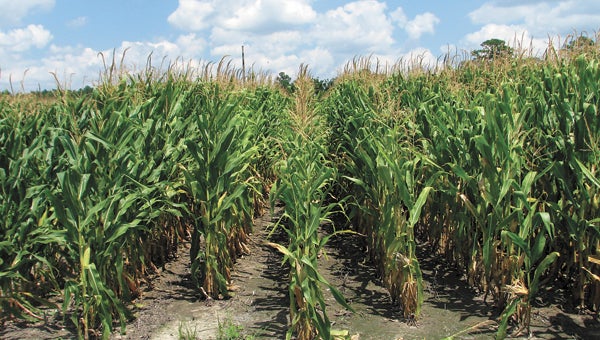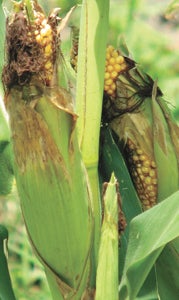Farmers watch the skies
Published 10:35 pm Friday, July 26, 2013

A field of corn grows off Holland Road. Suffolk’s agricultural extension agent Marcus Williams says area corn crops are starting to mature.
It’s early days yet for most crops, but Suffolk farmers are generally optimistic about a good harvest this year, Suffolk’s agriculture extension agent says.
“It’s very upbeat, as long as we can get good, extensive dry weather,” Marcus Williams said.
“The big thing is, we’re hoping the (rain) subsides long enough so when crops reach maturity, farmers can get in and get them out.”
Breaking down the situation crop-by-crop, Williams repeated “weather” and “rain” numerous times, which, given frequent cloudbursts of late, could indicate some anxiety in the farming population.
The crop that’s approaching harvest fastest is corn. “The tassels are starting to turn brown, so they are starting to get ear production,” Williams said. “That’s field corn, and it’s the same with sweet corn. It’s approaching maturity, but it hasn’t really matured.”
About 14,356 acres of grain corn are planted in Suffolk, he said.
Suffolk’s 9,589 acres of cotton, meanwhile, are entering the bloom phase, Williams said, adding, “That’s when you see white flowers (and) red flowers.”
“We’re going to have a pretty good (cotton) harvest,” he said. “The only problem is getting into the fields and getting it, if we continue to have wet weather like this.”
In many cases, soil has washed away from around the roots of cotton plants, he said, and strong winds could blow them over before the picker gets to them.
“Cotton still has a ways to go to reach maturity,” Williams said, adding that another concern before getting onto fields for harvest is getting dry conditions for insecticides and pesticides, which “need to be applied at the current stage.”
Suffolk’s largest crop, by a considerable margin, is soybeans, with 18,202 acres. Some farmers are still planting later varieties, Williams said, but most crops are fairly established.
“The only (soybean) problem this year is an increase in kudzu bugs … the ‘vine that ate the South,’” he said.
“It has an ultimate host in soybeans. Right now, you are seeing a lot of adults, and nymphs, but not a whole lot of damage yet — but it can get to that point.”
Peanuts are “still doing well,” Williams said, but added the wet weather is causing problems applying pesticides and fungicides.
Peanut acreage in Suffolk has decreased — to 3,950 acres this year — due to decreases in subsidies.
Also, Williams said, a surplus last year created an overage, so growers decided not to plant as much.
Sorghum is the small player among Suffolk crops, with only about five to 10 acres planted along Carolina Road, Williams said.
Overall, “With it being so early in the season, everybody’s still optimistic of a decent harvest,” he said.
“It won’t be as good as last year’s harvest, but it will still be a good harvest.”






